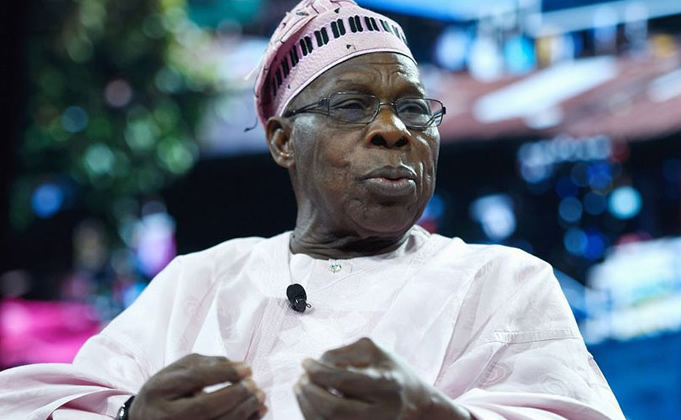Former President Olusegun Obasanjo has voiced deep concerns over Nigeria’s escalating debt profile, describing it as a heavy burden that threatens the well-being of both current and future generations. Speaking at the “Boiling Point Arena,” a virtual interactive forum on Sunday, the elder statesman highlighted the urgent need for strategic action to address the nation’s growing financial liabilities.
Citing data from The PUNCH, Obasanjo referenced Nigeria’s debt surge of N12.6 trillion within just three months, pushing the total debt to a staggering N134.3 trillion ($91.3 billion) by the close of the second quarter of 2024. This marked a significant 10.35% increase from the N121.7 trillion recorded in the preceding quarter.
Reflecting on his presidency, Obasanjo noted his administration’s achievement in securing debt forgiveness for Nigeria but lamented the nation’s current fiscal trajectory. “The present debt profile is not just a challenge for today; it is a ticking time bomb for this and the next generation,” he warned.
The Call for Transformative Leadership
Despite these financial challenges, Obasanjo remains optimistic about Nigeria’s potential, emphasizing the need for transformative leadership. Drawing from global examples, he cited South Korea and Singapore as nations that achieved remarkable progress through merit-based and integrity-driven governance.
“In South Korea, leaders prioritize merit in their appointments, which has laid the foundation for their development. Similarly, Singapore thrived under the leadership of Lee Kuan Yew, who emphasized trust, accountability, and integrity,” Obasanjo remarked.
Sharing a personal anecdote, he recalled an enlightening session between students from the Olusegun Obasanjo Leadership Institute and Singapore’s former Prime Minister. “Lee Kuan Yew shared insights on leadership rooted in trust and service to the people. Leadership must focus on nation-building, not self-enrichment,” Obasanjo added.
The Fight Against Corruption
A strong advocate for transparency, Obasanjo stressed that tackling corruption must be a top-down initiative. He criticized the perception of public office as an avenue for personal gain, warning that corruption, if left unchecked, could erode the foundations of governance.
“Corruption is like a hydra-headed monster. The fight against it cannot be a one-off endeavor; it must be a consistent, daily commitment across administrations,” he asserted. Obasanjo also emphasized the importance of creating a critical mass of individuals dedicated to rejecting illicit gains to sustain progress.
A Case for Constitutional Reforms
Obasanjo argued that many of Nigeria’s systemic challenges could be mitigated through constitutional amendments designed to enhance transparency, accountability, and equity. “National development and integrity hinge on these principles, combined with a sense of divine purpose,” he said.
He further called on leaders and citizens alike to work collectively toward a shared vision for Nigeria’s future, highlighting the necessity of long-term consistency in policy and governance.
A Legacy of Service and Accountability
In concluding his remarks, Obasanjo reiterated the significance of leadership rooted in service, accountability, and a commitment to future generations. “Progress is not a quick fix; it demands dedication, transparency, and collective effort,” he said.
As Nigeria grapples with its mounting debt crisis, Obasanjo’s words serve as both a wake-up call and a beacon of hope for a nation in dire need of visionary leadership and decisive action.

